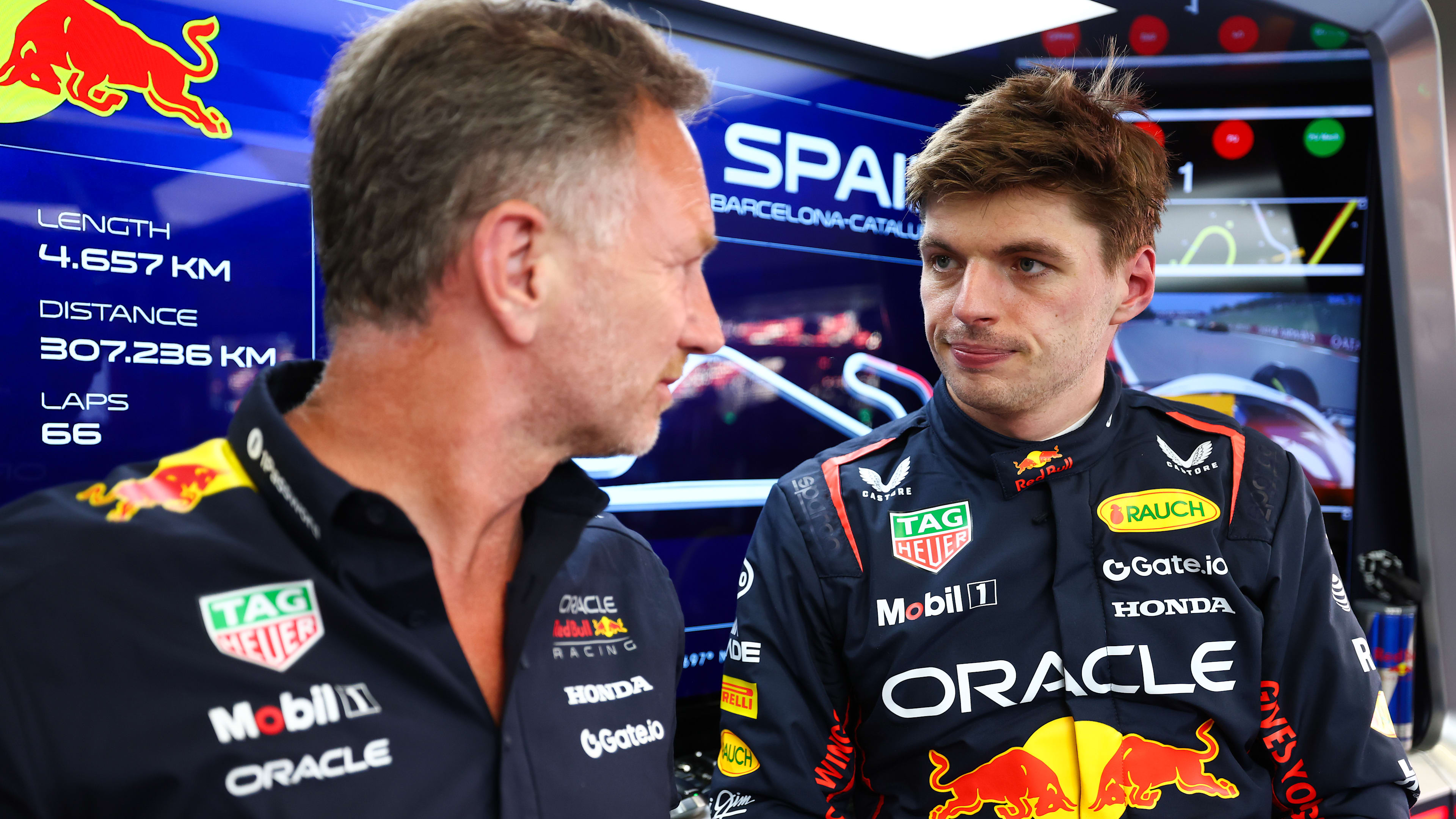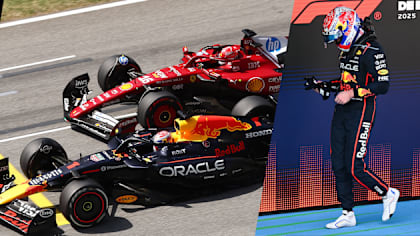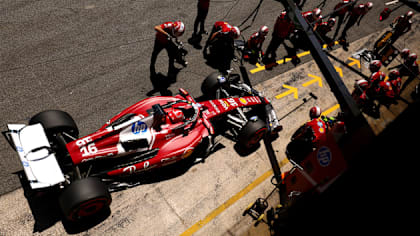News
Horner on why he feels Red Bull’s Cost Cap breach penalties were 'draconian' – and why his team have accepted them
Share
On Friday in Mexico City, Red Bull's Christian Horner spoke about the penalty handed to his team for breaching the Financial Regulations.
Red Bull were found to have exceeded the 2021 Cost Cap by less than 5%, specifically 1.6%, with the FIA having acknowledged that the team did not correctly report their Notional Tax Credit, which would have meant they exceeded the Cost Cap by 0.37%.
READ MORE: Red Bull enter Agreement with FIA over breach of 2021 Financial Regulations
The 2022 constructors' champions must pay $7 million to the FIA within 30 days, and they face a further 10% reduction in their allocated Restricted Wind Tunnel Testing and Restricted Computational Fluid Dynamics (CFD) limits.
According to Horner, who held a press conference to address the team's penalty, here's how the saga unfolded.
I think we have 52 pages of financial regulations and anybody who’s read them… there are elements that are open to interpretation.
Christian Horner
How Red Bull breached the Cost Cap
Horner explained that the team had submitted their financial reports as early as April 2021.
He then added: "There was no feedback from that, and so therefore based on that, those policies we felt were adopted as nothing had been spoken up about, and therefore we adopted the same methodology in our March 2022 submission for the 2021 season.
"Through April and June, obviously the FIA… had come and looked at our accounts and books and within this submission there is in excess of 75,000 line items – just to give you an idea of the scale of it – that have to be entered.
READ MORE: Aston Martin enter Agreement over procedural breach of 2021 Cost Cap
"So basically, April and June as I say this year we didn’t hear anything. The first that we actually heard was… on the back end of September for some preliminary findings, where some clarifications were requested, which we officially responded to the 13 points that had been raised. And obviously felt again at that time we’d answered all the questions that had been raised by the FIA in this first year of the cap.
Catering costs, we believed, were excluded
Christian Horner
"I think we have 52 pages of financial regulations and anybody who’s read them… there are elements that are open to interpretation. We’ve applied accounting interpretations that, for example, our auditors have been happy with but that’s had a different treatment from the FIA. If we made a mistake it was assuming that the FIA is like an audit process, and it’s not, an the treatment has been very different to that which you would receive from an auditor. As I say, there’s lessons for all concerned out of this."
Horner pointed out that the FIA stated: "There is no accusation or evidence that RBR [Red Bull Racing] has sought at any time to act in bad faith, dishonestly or in fraudulent manner, nor has it wilfully concealed any information from the Cost Cap Administration."
He added: "So we haven’t hidden stuff; we’ve made our interim submissions, we’ve been through the process. Perhaps we expected more, perhaps we should have asked more – that’s part of this process.
And the team boss maintained that there was no advantage gained by Red Bull for breaching the Cost Cap.
"Not one penny was spent on the performance of the vehicle, not one penny was spent on the performance of the car. and I think that I’m astounded that there are no other teams that have found themselves in this position but good for them, that eight of them are fully complied. Did we see any on-track performance? No, we didn’t."
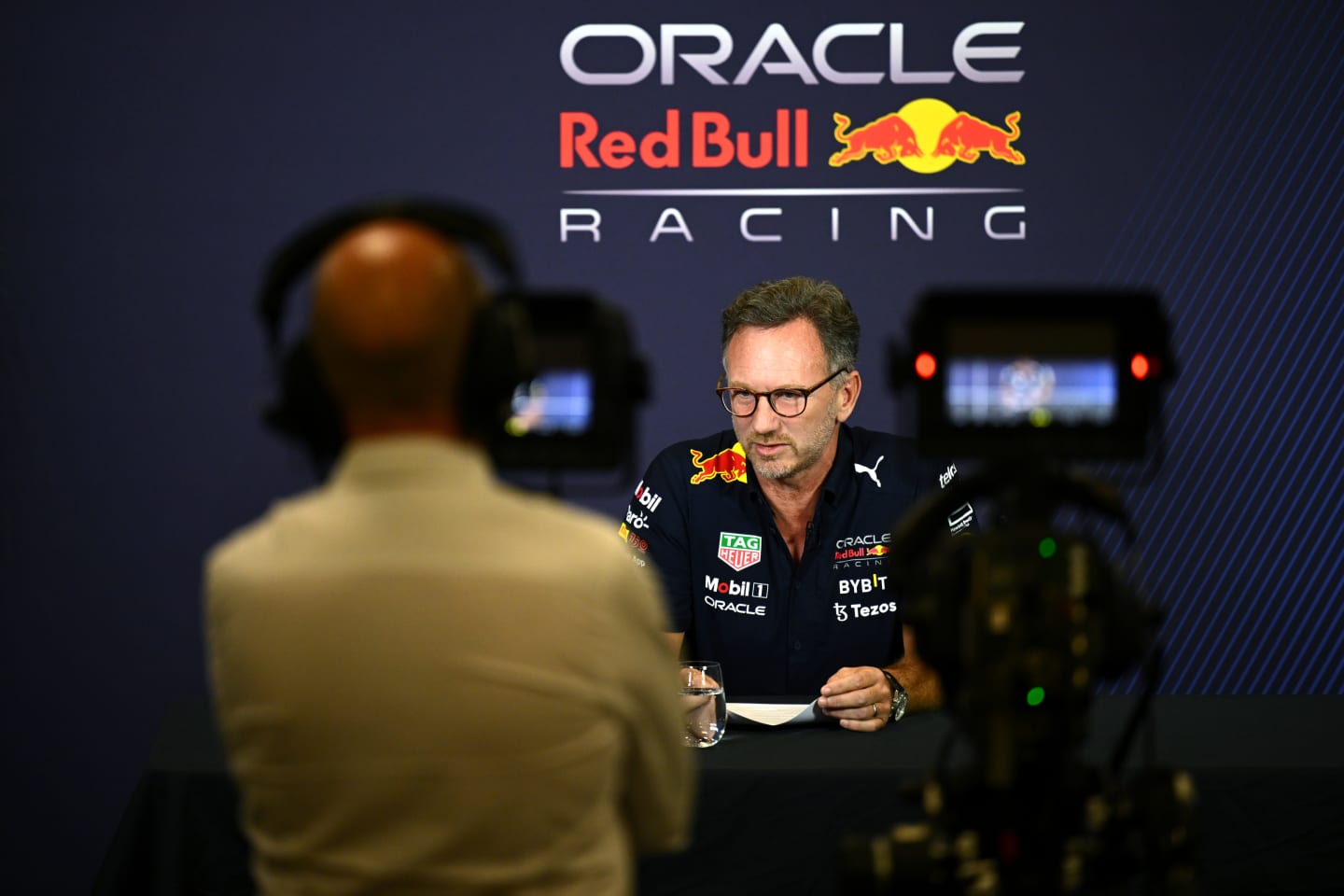
Horner was adamant the overspend hadn't benefitted Red Bull on track
How tax, catering, sick pay and redundancy caused confusion
"Our overspend relates in several areas: one, of course was the tax, that I’ve mentioned. Two, was a change to the regulations in June, after the submission, that had we been allowed to resubmit would have had a benefit to us in the region of £1.2 million of unused parts and the way those unused parts had been accounted and treated and we believe had been adopted by other teams in their submissions.
"Catering costs, a lot had been made that we’d given our staff too much food this year. Catering costs, we believed, were excluded. And again just to put into context, when we submitted our submission, we were £3.7 million under the submission, under the threshold. Catering within Red Bull has always been a benefit that has been provided by the group… free food and beverage has always been provided. Therefore… we viewed it as an excludable cost. Aggressive, but we felt it was acceptable. The FIA took a different viewpoint on that and said that food not excludable.

"We had a difference of opinion on sick pay; we have always taken a view that we wanted to support our staff in sickness and in health”
"We had a difference of opinion on sick pay; we have always taken a view that we wanted to support our staff in sickness and in health, and, when members of staff have been on long-term [leave] we supported them, as we will continue to do in the future. We felt that sick [pay], the role paid no function in the Grand Prix team in the period of eight months, [so it] was an excludable cost. Unfortunately, the regulations can be interpreted in two ways: had the person died, which thankfully they didn’t, the cost would have been excludable. Thankfully they didn’t die; therefore the cost was includable for that period.
"Another point that we had a differing opinion on was leavers and redundancy, and the movement of staff between companies. This sometimes happens between Grand Prix teams that have separate entities. So for example we had a senior member of staff on a lock-in contract, a fixed-term contract, that was offered a Hollywood-style offer from another team and, at that point you can see that their heart and mind is not within your company, so they were transferred from the Formula 1 activity into our advanced technology [division]…
"The individual then left the company from there, but the time they spent not in the Formula 1 company was included in the cap. Again, something we felt was an excludable cost," explained Horner.
We might have lost 10% in ATR, but I think we’ve gained 25% in motivation from every single staff member in Milton Keynes
Christian Horner
How the penalty may affect Red Bull
"It’s a hit, it’s a handicap, and we are going to have to work incredibly hard," said Horner. "It gives an advantage to our competitors, which is why they were pushing so hard for a draconian penalty, and we’re going to have to work incredibly hard within the time that we have available and we're going to have to be efficient with our time, we’re going to have to be efficient with the runs we choose to do within our wind tunnel.
So I have full belief in our team, in the capability of our team – I think they’ve demonstrated that time and time again. There were other sporting penalties that were available to the FIA but this one was obviously lobbied hard for by our competitors and they felt this hit us the hardest.

Horner said the penalties would have a "material impact" on the team's 2023 car development
"I’m sure for [rivals] it won't be enough; I’m sure if you burned our wind tunnel down it wouldn’t be enough. But this is a penalty the FIA, after an awful lot of dialogue with them, they know the impact it has on us… this has a material impact on our car performance for next year.
"As I say, it’s difficult to put a lap time figure but one could assume… there could be anywhere between 0.25 and 0.5 of a second. But what we’ve lost in ATR [Aerodynamic Testing Restrictions], we’ve gained in motivation. I’ve never seen a more motivated group of individuals that have done an outstanding job last year and this year, in a regulation change that has probably been the biggest in the last 40 years, and we might have lost 10% in ATR, but I think we’ve gained 25% in motivation from every single staff member in Milton Keynes."
I think what we have set is a precedent, and it sets a precedent for 2022
Christian Horner
Why Red Bull didn't appeal, and the effect of their punishment on F1
"We accept that this set of regulations is immature, we accept that there are interpretations, we accept that this FIA administration has inherited these regulations, and indeed there’s an awful lot of work that needs to be done for the future. Had we dragged it out through the administration process, to go to effectively appeal, that could’ve taken months, and then beyond that the International Court of Appeal could have taken further months. So we could have been looking at a 12-month period to have this situation closed.
"The amount of speculation and commenting and sniping that has been going on in the paddock, we felt it’s in everybody’s interests – in our interests, in the FIA’s interests, in Formula 1’s interests – to say we’ve closed the book. We close the book here and today, we accept the penatlies, begrudgingly, but we accept them.
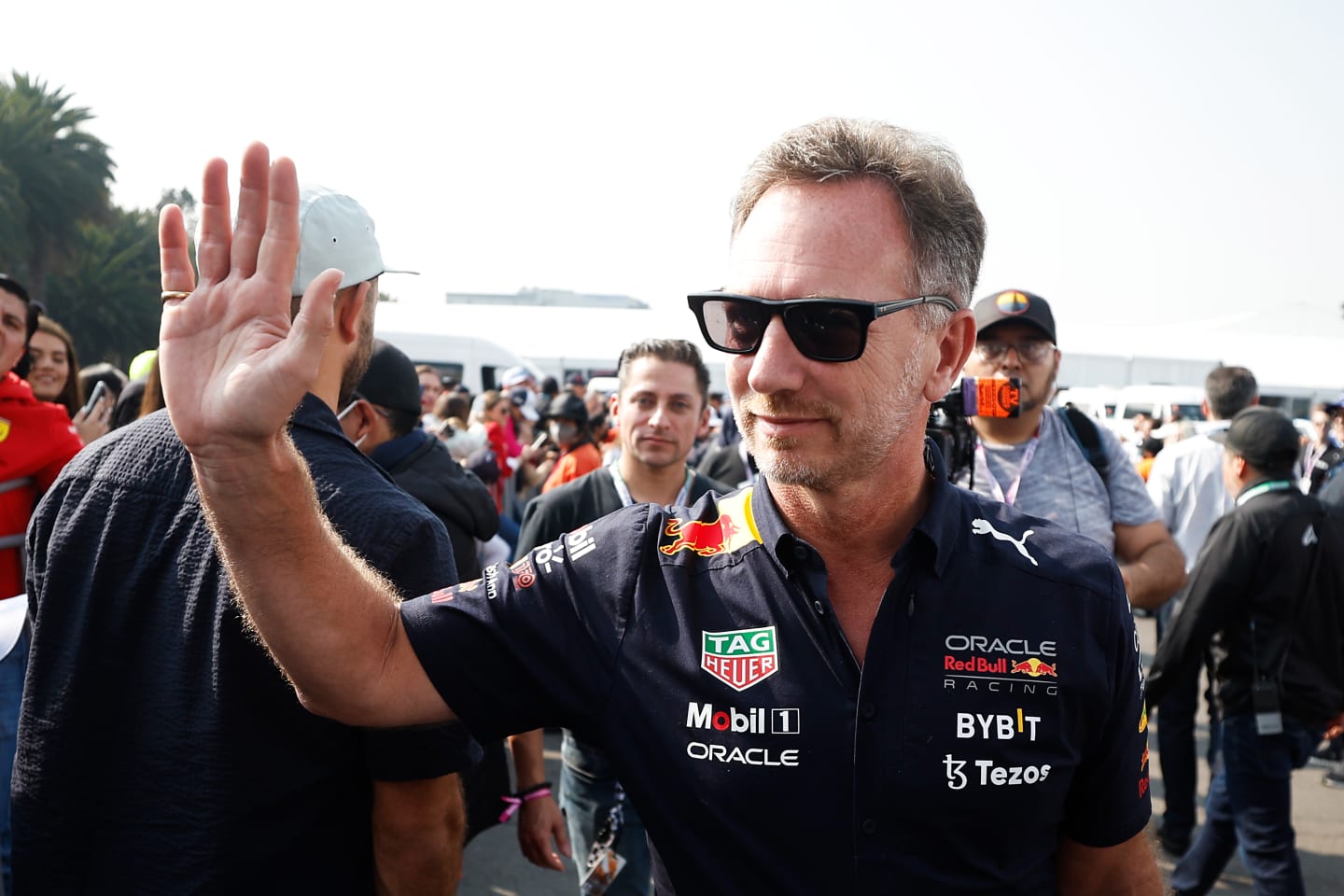
Horner said the team “begrudgingly” accepted the penalties
"I think what we have set is a precedent, and it sets a precedent for 2022, and the danger for 2022 is that there could be six teams in breach of the cap. Energy prices have been exponential, thankfully we’ve been protected from those, but you know, there is that chance that several teams, many of which have stated in Formula 1 Commission meetings, will break the cap this year; we do not believe that we will break the cap in 2022… but these penatlies set a precedent for the future, so if you get 10% for a 0.37% breach, what is a 5% breach going to be like?
"Collectively, we believe that the Cost Cap is an important part of Formula 1, it’s an important part of its future,`but it has to be in a manner that is consistent and applicable and developed. That is why we’ve chosen to accept it, we take it on the chin, but as I say: now is the time to put it to bed and move on."
YOU MIGHT ALSO LIKE

Video WATCH: See how Piastri beat McLaren team mate Norris to pole with our ‘Ghost Car’ feature

Video HIGHLIGHTS: Watch the action from the Spanish GP as Piastri wins while Verstappen and Russell collide
FeatureF1 Unlocked MONDAY MORNING DEBRIEF: Verstappen made contact with Russell and Leclerc – but why were they racing each other in the first place?
FeatureF1 Unlocked STRATEGY GUIDE: What are the tactical options for the Spanish Grand Prix?
